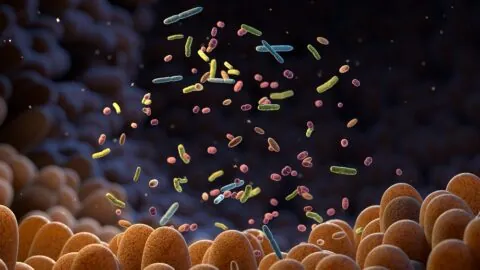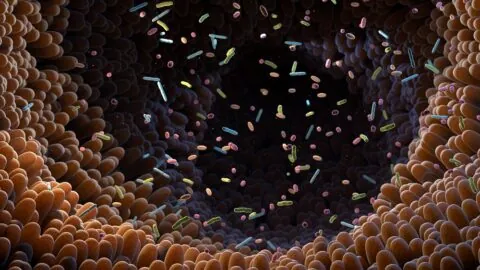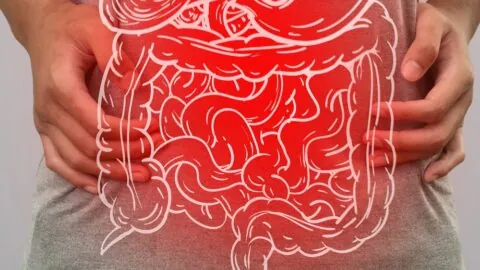June 11, 2025
In a recent study that included data from humans, mice, and cell culture experiments, researchers demonstrated that gut microbes and their metabolites can profoundly influence the senescence of endothelial cells. They also explored the molecular processes underlying these changes [1]. Senescence in the blood vessels Endothelial cells line the inner surfaces of blood vessels, and...
May 07, 2025
In a recent study, lifelong, repeated microbiota transfer from young mice to old mice improves intestinal permeability, coordinative ability, and metabolic profiles while reducing pro-inflammatory responses [1]. Small in size, but mighty in impact Previous research has found that the composition and function of gut microbes (microbiota) changes as we age. These changes are linked...
February 12, 2025
A new study dives into a human-derived probiotic cocktail meant to protect against Alzheimer’s disease. The treatment improves gut health and reduces inflammation in mice [1]. The earlier, the better Early interventions to prevent or delay Alzheimer's disease might be a more feasible approach than reversing the disease when it is fully developed. However, such...
January 23, 2025
In Aging Cell, researchers have described how different combinations of gut bacteria impact muscle strength in mice. Expanding upon a known link The link between gut bacteria and health is well-documented, and multiple biomarkers have confirmed that a healthy gut leads to health elsewhere [1]. This is not just due to inflammation caused by pathogenic...
January 15, 2025
A recent study linked probiotic-induced gut microbiome and metabolite changes to improved muscle functioning in older sarcopenia patients [1]. Sarcopenia and the gut Sarcopenia is an age-related condition. People with sarcopenia suffer from a reduction in muscle mass, strength, and function, leading to a decreased quality of life and increased morbidity and mortality [2]. The...
January 14, 2025
In a preprint study, scientists from Lifespan Research Institute and the Buck Institute for Research on Aging have published their findings that Urolithin A, a molecule that has garnered a lot of attention in the longevity field, potently reduces senescence-related markers in human fibroblasts [1]. Senolytic versus senomorphic Cellular senescence is a well-documented aspect of...







